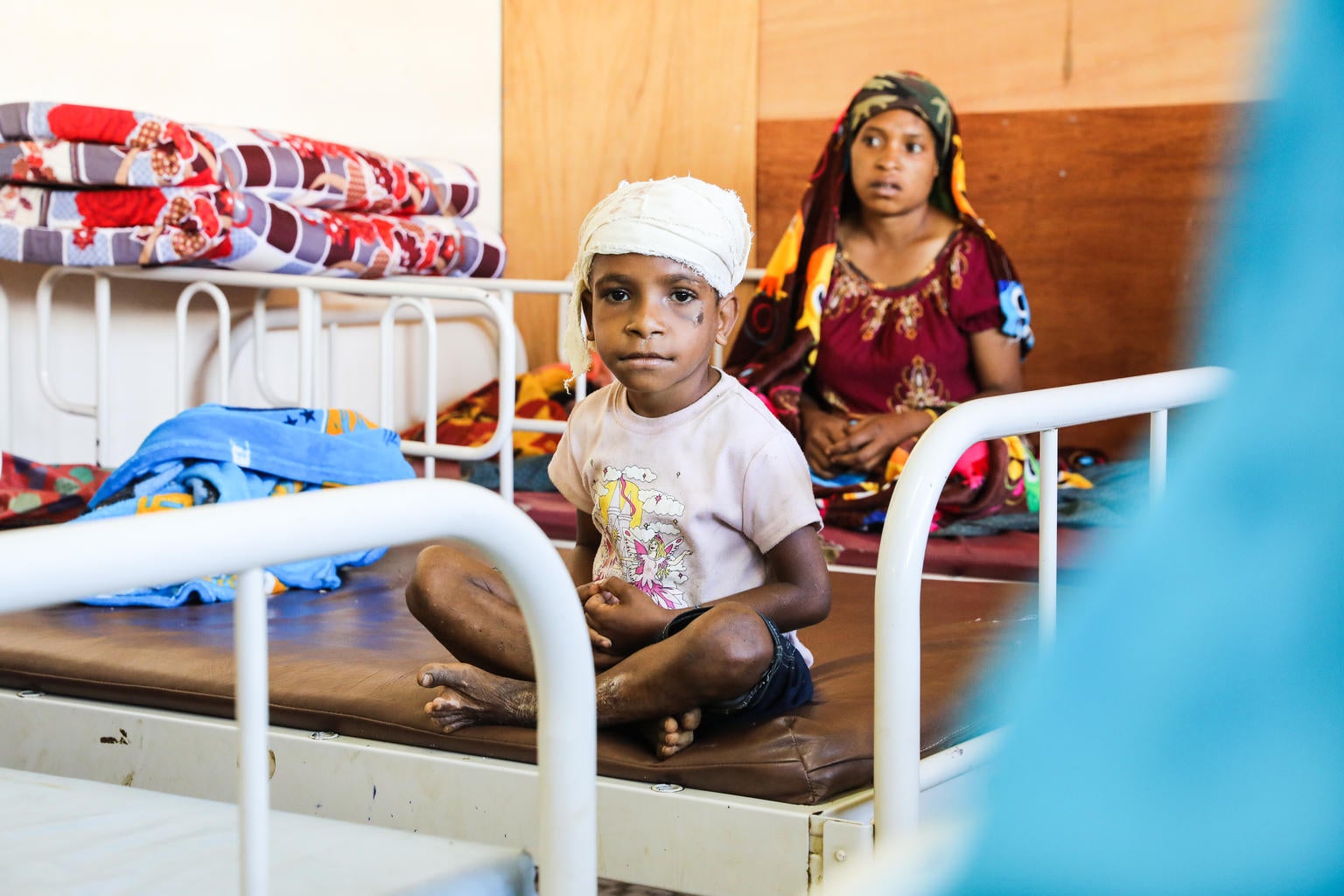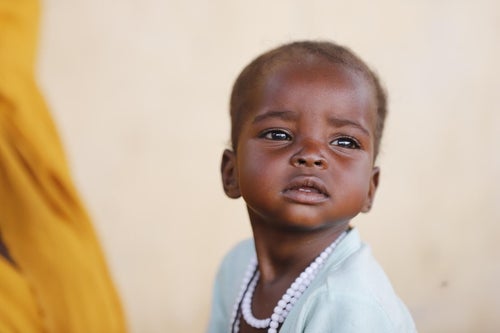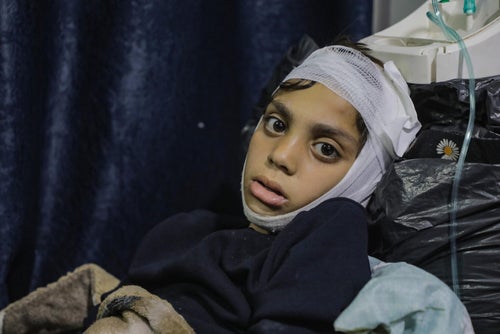Douglas smiles for the camera but a large bandage on his head reminds his family how close he came to death.
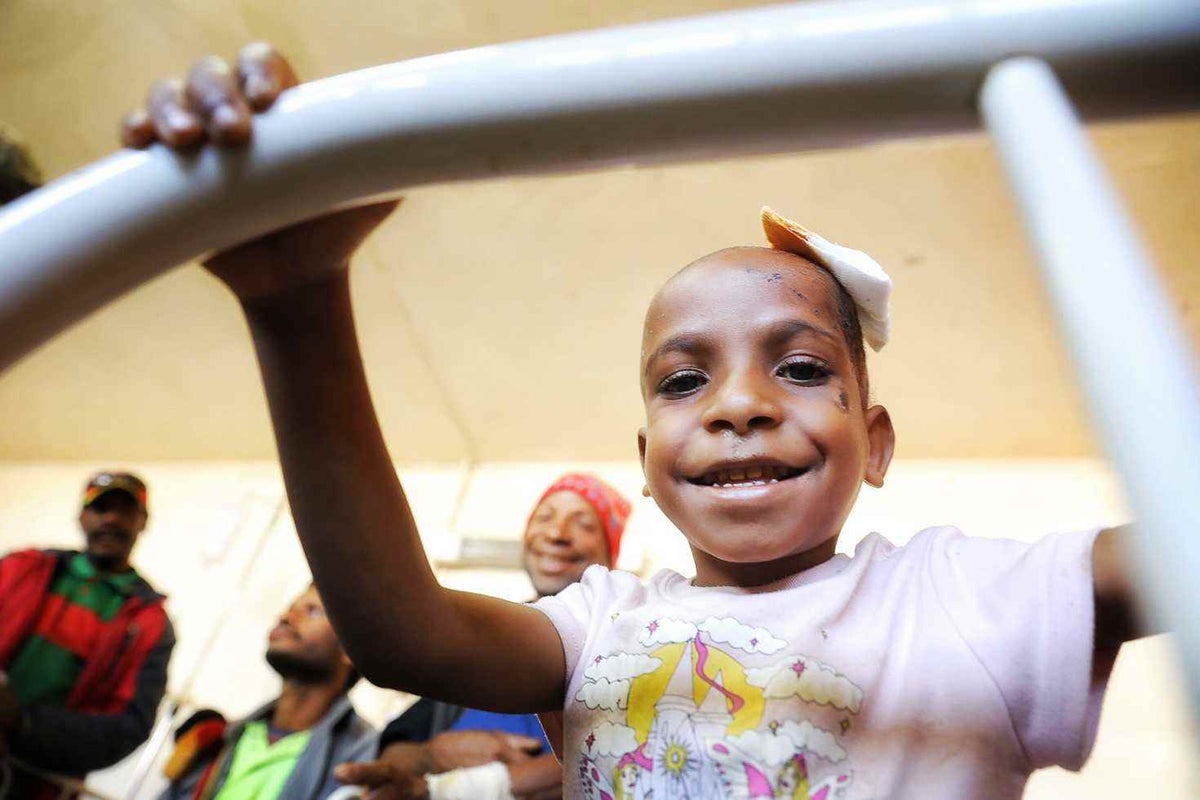
“We ran out of the house when the earthquake came. It was dark, we couldn’t see what was happening. The rocks from a landslide hit him on the head but he is very lucky to be alive,” explains a relative who is taking care of 14 injured people at Mt. Hagen Hospital in Western Highlands Province.
Douglas and the group were airlifted to the hospital by Missionary Aviation Flights after a massive earthquake completely flattened their village, wiped out food gardens and destroyed their water sources at Huya in Mt. Sisa.
Many injured people are still in Huya because they have no way of travelling to a hospital for treatment. On a normal day, the nearest health facility for this community is a day’s walk away. But now, landslips have completely blocked off access and made this impossible.
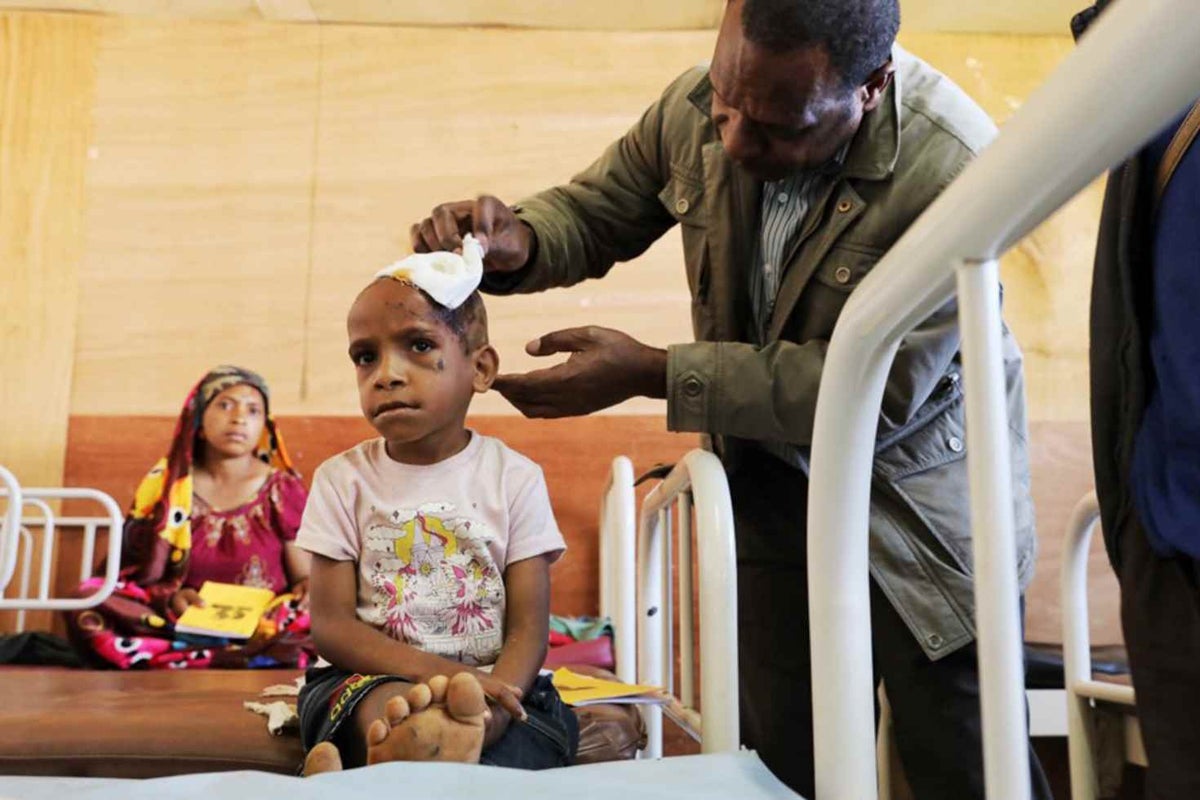
Douglas and his family are ready to go home to Huya but they don’t know when they’ll be able to get on one of the few flights to their area.
Over half a million people have been affected by the 7.5 magnitude earthquake and more than 100 tremors and aftershocks across the four provinces of Hela, Southern Highlands, Enga and Western Provinces.
271,000 people need urgent humanitarian assistance in areas where homes, subsistence farming and basic infrastructure such as telecommunications, roads, hospitals and schools were destroyed. 125,000 thousand of them are children who need immediate support to stay safe and healthy.
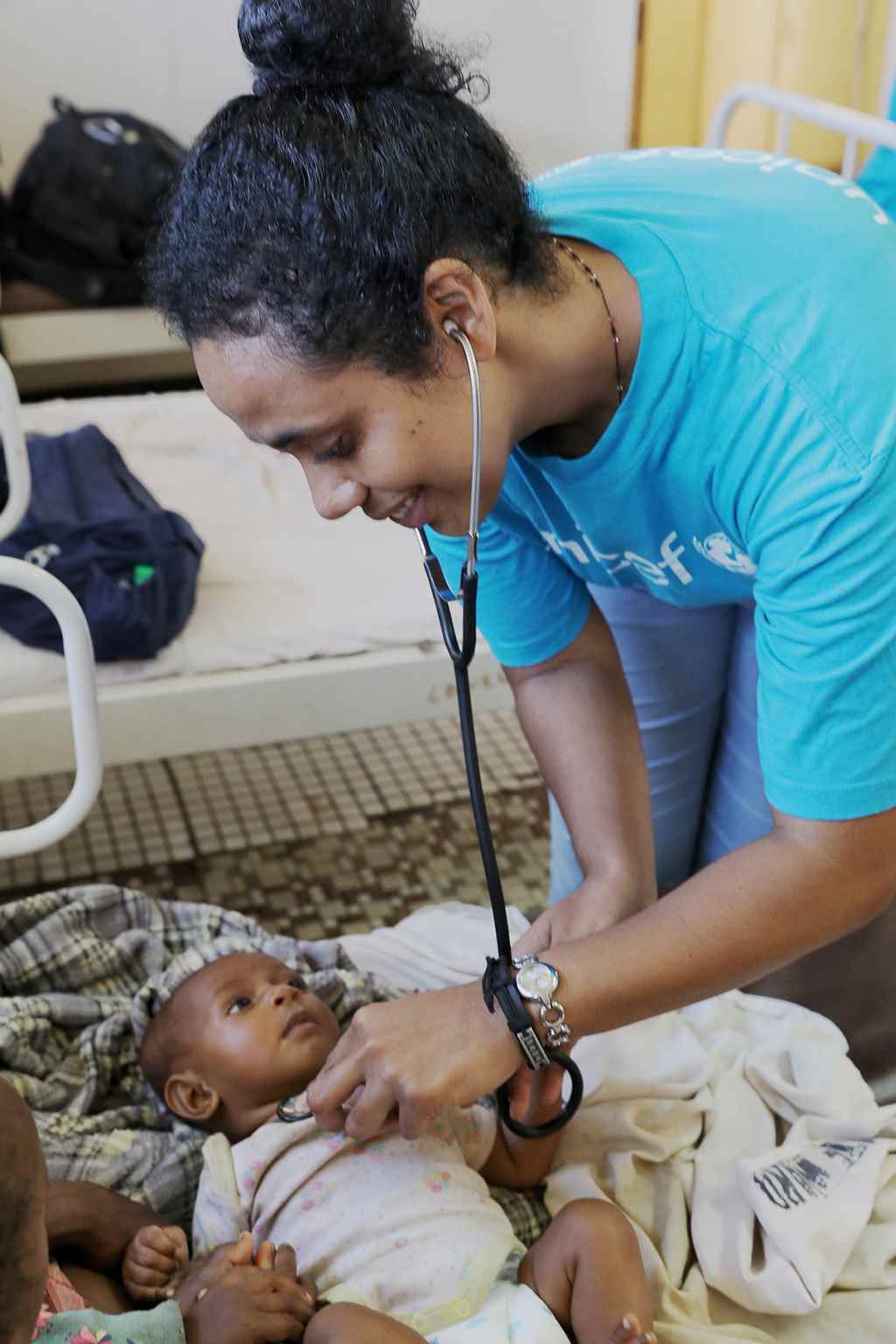
Working closely with Government and partners, UNICEF is supporting hygiene kits, basic sanitation and delivery of vaccines for children and women. Teams are working to restore damaged ‘cold chain’ facilities to properly store vaccines and ensuring that devices are in place for hypothermia and neonatal resuscitation.
Meanwhile, UNICEF is working to provide temporary, safe learning spaces for children and women to recover with psychosocial support.
About half of children under-five in Papua New Guinea are chronically malnourished; the highest rate in the Pacific and fourth worst in the world. The situation is likely worse with the ongoing emergency so UNICEF has prioritised ready-to-use therapeutic food and micronutrients for children.
As Douglas and his family prepare to return home to a devastated community, thousands of children still need help to survive today and to recover in the tough weeks and months ahead. UNICEF will stand by them every step of way.
Help children like Douglas survive and recover
There are thousands of children like Douglas who are particularly vulnerable to injuries, hunger and disease in the aftermath of these massive natural disasters. They're in shock and urgently need food, water and shelter.
UNICEF will do whatever it takes to help children like Douglas but we can’t do it alone: we need your support to provide more life-saving supplies. Please give generously today to help us give children therapeutic food for malnutrition, clean water and safe spaces to rest and play.
Donate Where the Need is Greatest
Help UNICEF to be there for children wherever the need is greatest, no matter what.
Related articles
Stay up-to-date on UNICEF's work in Australia and around the world



